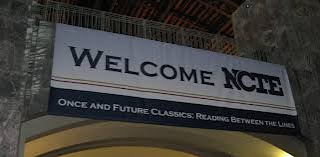My wonderful CFG challenged each of us to write our professional creed/belief statement, so this is what I wrote:
My Bottom Lines
Teachers and students
deserve respect.
“To teach
in a manner that respects and cares for the souls of our students is essential
if we are to provide the necessary conditions where learning can most deeply
and intimately begin.” bell hooks, Teaching
to Transgress: Education as the Practice of Freedom
To
work from respect means that my stance is grounded in positive assumptions and that
my mission isn’t about fixing anyone. (I’m not a handyman nor do I want to be.)
Respect means that I trust that teachers and students are capable, competent,
and well intentioned. And how does that translate into practice?
- Relationships underpin the risky, challenging work that we do as educators. To the best of my ability, I need to know the teachers, the administrators, and the students.
- Instead of rushing right into the work, I need to slow down and say hello, check in, and see how life is.
- Agendas need to be built so that all voices are a part of the conversation right at the start.
- Kids have stories, and so do their teachers. It’s those stories that shape who they are, and it’s my obligation to seek out those stories.
- Peter Johnston’s caution must be kept in mind: “there are hidden costs in telling people things. If a student can figure something out for him- or herself, explicitly providing the information preempts the student’s opportunity to build a sense of agency and independence…” Substitute teacher with student and a good share of my work is about asking, listening, probing, and paraphrasing, and then, perhaps, consulting.
All voices, including the
dissenting voice, matter. Instead of labeling someone a resister, I owe it to her tobe disturbed, to listen, and to come to understand, but with no obligation to
agree. When students say that work is stupid, my job isn’t to correct that
perception but to understand if the level of difficulty is out of reach or if
something else is at play. When teachers say that students can’t write a
counterclaim, my job isn’t to say “yes but.” Instead, my job is to figure out
if it’s really about belief in students or doubt about a teacher’s capacity or
simply a question about how to do the work.
Students and their
teachers deserve to do work that matters. Time is the nemesis of all in education,
so it cannot be squandered. The work done within schools must be purposeful,
meaningful, and relevant. There’s no reason that students can’t write for
authentic audiences, solve problems that reside in the world, or contribute to
our society. Likewise, there’s no reason for teachers to collect data that has
nothing to do with their instruction but everything to do with a misguided
policy or to complete other tasks that take them away from doing the work of
planning, teaching, and checking on students’ understanding.
Vision determines future
steps.
As students grow, they need a vision of what’s possible: to see people like
them doing important work, to study models of work that can serve as mentors,
and be inspired by people who have achieved despite the odds. Likewise, teachers
need a vision of classrooms and schools where students are highly engaged
regardless of their home situations. Schools/districts/policy makers need a
vision of schools where students thrive regardless of their past. Vision
creates possibilities and generates hope.
Engagement is the trump
card. Even
before standards, before assessments, and before strategies, teachers must plan
for student engagement. Thinking about whether the work requires attention,
persistence, and commitment is critical. Holding the tenets of Pink and others
of autonomy, mastery,
purpose, and belonging is critical. Likewise, teachers
need to be engaged in the work that they do. They need to know that their work
matters and that it’s work that they can and must do.- What does this look like in terms of practice?
- Lessons live within a context: a unit of study, a year’s curriculum, a life.
- Students need to be the workers, the thinkers, the do-ers, and teachers need to be the ones planning for these students at this time.
- Teachers can create the conditions that nurture engagement (the 6 Cs).
- Choice, choice, choice.
--- Stevi, December 2015




